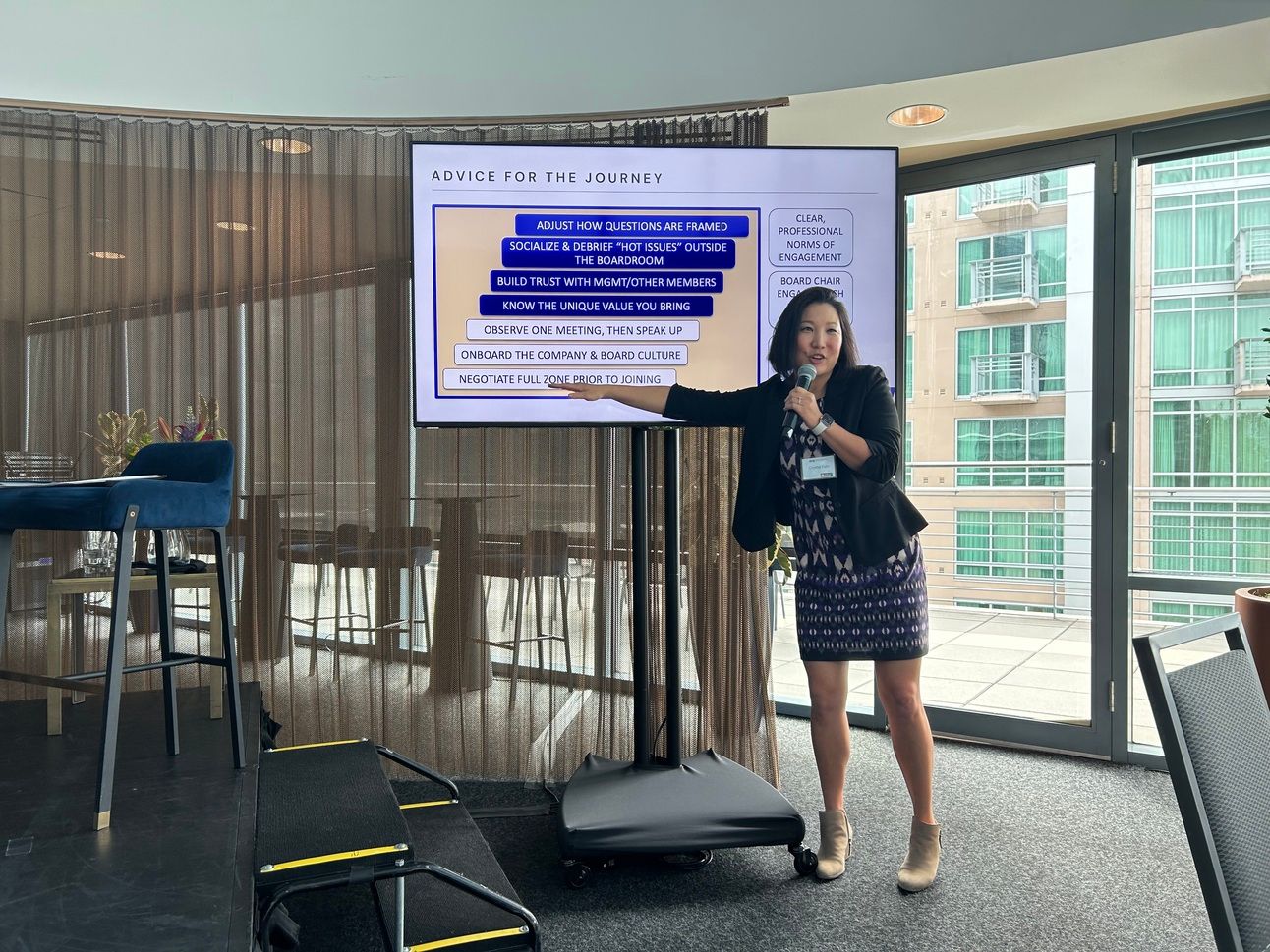
Crystal Fahr, a professor and researcher at the University of Washington, explains what it means to be “full fledged” as a board director. Photo by Emily Parkhurst
What you probably already know: Study after study show that companies with diverse boards perform better, but progress toward diversifying public company boards has stagnated. As DEI and ESG come under attack, particularly in the U.S., companies have shied away from overtly touting the diversity of their leadership, which has resulted in fewer intentional searches for diverse board members. In 2024, 58% of new board directors for S&P 500 companies were diverse, compared to 67% in 2023 and 72% in 2022, according to Spencer Stuart. Last week at an event at the World Trade Center Seattle, BoardReady, a nonprofit that works to identify diverse board members, unveiled details of its partnership with the University of Washington to research how diversity impacts board dynamics. While the full report is yet to come, the group unveiled some initial findings and discussed takeaways.
Why? “What we quickly realized was that this is not a supply issue,” said Deanna Oppenheimer, co-founder of BoardReady, “it’s a demand issue.” There are plenty of qualified women and people of color to serve on public boards, but companies simply aren’t seeking them out. Meanwhile, having diversity of thought on boards has increased in importance. Companies are facing the “three Ds,” according to BoardReady Co-Founder Phyllis Campbell: Disruption, disagreements and division. “I don’t think that I’ve ever seen a time when more stakeholders disagreed on different courses of action that companies are taking,” Campbell said. “There’s been more activist investors this year, there’s been more proxy resolutions on anti-DEI, anti-ESG, and just disagreements about directions that companies are taking that sometimes get to what the core of the company is about.”
What it means: The University of Washington has interviewed dozens of public company board leaders, many of whom are diverse, and has found that there’s a point at which board members become “full fledged.” At that point, the director understands the company and the board culture in such a way that they feel like their voice is heard and that they can speak up. “It’s very important to show up early on in your zone of expertise,” said UW Professor and Researcher Crystal Fahr, “but then expand out of that. Don’t pigeonhole yourself.” Women directors will often self-censure, she said, especially early on in their time on the board as they wait to see if their contributions will be respected.
What happens now? BoardReady and UW are working to complete the study and will be rolling out the results as they become available. The researchers are coding the results of lengthy interviews with board directors to identify common takeaways that will be valuable to boards that are looking to ensure their practices encourage strong participate and engagement by everyone on the board. “If you don’t feel like your voice is going to be heard,” said lead UW researcher Bruce Avolio, “then you are going to hold back on that.”

